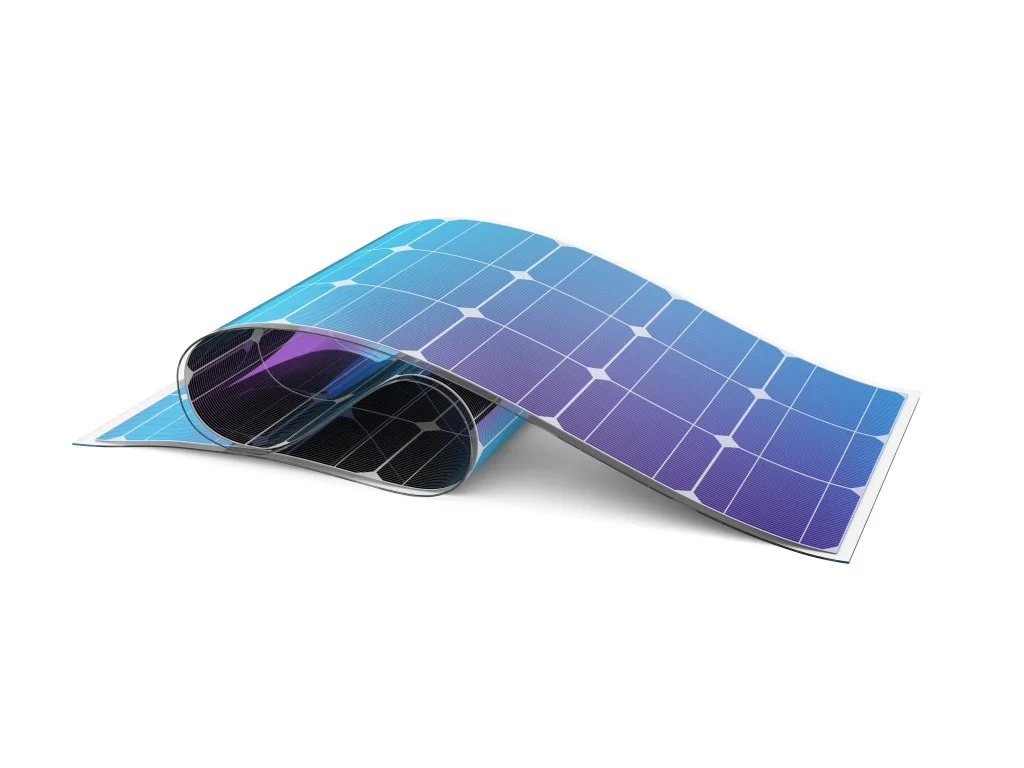Are Flexible Solar Panels Worth It?
Solar power – it’s clean, renewable, and it’s also becoming an increasingly popular way to power your RV. However, setting up an RV solar system is confusing.
There are so many options. Today we’re discussing one of the newest solar panel choices.
Enter flexible solar panels.
This game-changing technology dramatically expanded the possibilities of portable solar power. But they may not be the right choice for everyone. Let’s take a closer look!
What is a Flexible Solar Panel?
A flexible solar panel, much like the name implies, is a type of solar panel that can bend and flex. This allows you to install it on curved surfaces or other places where standard solar panels could not.
Traditional panels are made up of rigid silicon wafers, while flexible ones are created with ultra-thin silicon cells.
Generally speaking, flexible solar panels are much thinner and lighter than regular solar panels. This significantly reduces their overall weight, an important consideration for mobile solar situations.

Are Flexible Solar Panels Worth It?
Before considering whether to go solar at all, consider your power needs and camping style. If you use large amounts of power or spend most of your time at RV parks or other places with electric hookups, you may want to skip solar.
However, solar systems are excellent choices for those who love to boondock or dry camp and desire some of the comforts of their electrical system while staying off-grid for longer.
Furthermore, some RVers who don’t travel frequently may wish to use traditional rigid solar panels. These are generally more efficient, meaning you’ll need fewer panels and spend less on your setup costs.
Flexible solar panels are the best choice for off-grid campers who need to maximize a small RV roof or one with many obstructions. Flexible panels can bend to the curve of an airstream. They can also mount on the front of a 5th wheel, taking advantage of space a rigid panel can’t.
What type of energy loss do flexible solar panels have?
Flexible solar panels generally have an efficiency between 7 and 15 percent, compared to traditional panels with 16-20 percent efficiency.
As you can see, even the best flexible panels will tend only to be as efficient as low-end rigid panels and could be only one-third as efficient in the most extreme cases. This is critical to understand, as this means you will need more flexible panels to generate the same amount of power.
The ability to bend a flexible solar panel makes it immediately less efficient.
How long will flexible panels last?
Due to the impact of flexing and bending, flexible solar panels don’t last as long as traditional styles. While rigid panels can last more than two decades, flexible panels often only have a 2-5 year warranty.
This suggests manufacturers understand that parts of the panel will begin to fail more frequently after the 5-year mark.
While yours can last significantly longer, you should budget to replace them about that often in order to be sure you’re ready when replacement time arrives.
How Much do these panels cost?
Flexible solar panels start around $120 for a 100W panel and cost up to $200 for certain models. This is more expensive than traditional monocrystalline or polycrystalline solar panels.
These panels have experienced big price fluctuations recently. Here’s the current cost of the most popular flexible solar panel.
Are flexible solar panel a good choice for RVs?
Flexible solar panels can be a good choice for RVs, but not in all cases. If you’re looking to squeeze every inch of RV roof space, flexible panels will help you do that.
Generally speaking, flexible solar panels are not a good choice for those who have the space to install rigid panels on their RV roof.
Would You Go Flexible?
Flexible solar panels have provided a major boost for the solar industry, allowing installations in situations previously considered impossible.
But they’re not for everyone – including some RVers. For those who need them, they provide a useful tool for self-sufficient living with the flexibility you need – pun intended.
Keep in mind: Here are 7 reasons you don’t need RV solar power at all.
We’ll Help You Find the Best Free Camping in the USA
You should give it a try!
As a matter of fact, these free campsites are yours to enjoy. Every time you pay federal taxes, you’re contributing to these lands.
Become a FREE CAMPING INSIDER and join the 100,000 campers who love to score the best site!
We’ll send you the 50 Best Free Campsites in the USA (one per state). Access the list by submitting your email below:
Great article, Kyle. Something else to consider with flexible panels is the heat buildup. Rigid panel mounting leaves space beneath panel, so there is no direct heat transfer to your RV’s roof. The flexible panels are transferring that heat buildup directly into your roof. We’ve yet to see if that’s resulting in any longterm damage to roof beneath the panel, but it certainly needs further study.